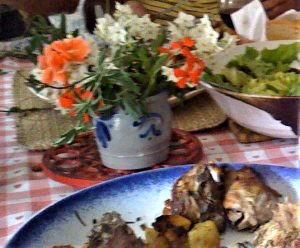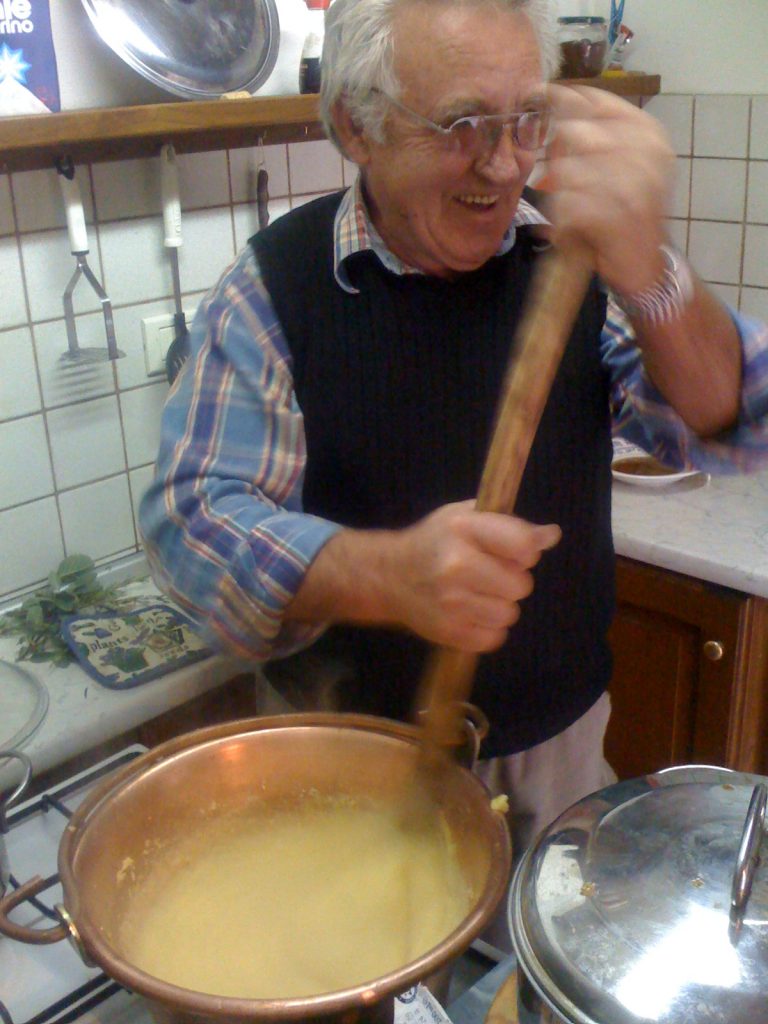E ating is a passion all over Italy.
ating is a passion all over Italy.
In Tuscany it is almost a religion. A recipe book, unless the handwritten variety, is seldom used. Home cooks and even restaurants generally keep to dishes passed down for generations. Ladies from the village take pleasure in demonstrating traditional dishes to summer visitors. Watch how it is done, sit and eat together, and drink good Italian wine. It may come from nearby Chianti where you can visit the vineyards or any of the other surrounding wine-growing areas, but it will be good – and because you are in Italy, not expensive.
Be sure Caprese cooks will go out of their way to obtain the best local ingredients ; funghi, lamb, cheese, vegetables, even wild boar. There is no food fresher.
If you would like to have a traditional dish made for you, it is sufficient to pay for the ingredients and add something extra for the cook’s time and trouble. The cook will be happy, and so will you. You will never leave the table hungry.

Vittorio.
Years ago when the BBC was doing a program on juniper harvesting in Tuscany, a reporter interviewed Vittorio for Radio 4 and found that the entire ground floor of his house was devoted to food.
Beneath the living rooms, the cantina was stacked from top to bottom with wood for cooking and heating.
This is the traditional mountain preparation for winter. Before 1950 there were no roads, travel was by foot and the climate was a lot harsher. It is only in the last 30 years that has it been possible to grow olive trees at this altitude.
Grocers and supermarkets are now within easy reach, but everyone still cultivates their vegetable garden. Old habits and passions die hard, and at the height of the season when there is a glut, peaches, plums, zucchini, tomatoes – fruit and vegetables of every sort – may be seen carried round in baskets from door to door by growers looking for someone to give them to!